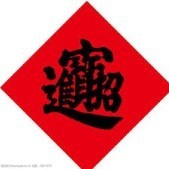-
Posts
14848 -
Joined
-
Last visited
-
Days Won
210
Content Type
Profiles
Forums
Events
News & Reviews
Everything posted by Huat Zai
-
A group of researchers essentially pulled energy out of nothing using a quirk of quantum mechanics. Two different physics experiments proved the feat is possible when they drew energy out of an energy vacuum by teleporting energy across microscopic distances. The new experiments drew on a 2008 theory from theoretical physicist Masahiro Hotta at Tohoku University, as per a report from Quanta Magazine. See Also Masahiro Hotta's energy teleportation theory Masahiro Hotta's theory garnered little attention in 2008, as pulling energy from the quantum vacuum was considered an unrealistic possibility. However, the new experiments are arguably the final step in altering that perception among the scientific community. Though many dismissed Hotta's theory, it was actually suggesting something a little more subtle than simply drawing energy out of thin air. The theory essentially suggested utilizing a quirk of quantum mechanics to teleport energy into an area that was otherwise devoid of any energy. "This really does test it," Seth Lloyd, a quantum physicist at the Massachusetts Institute of Technology who wasn't part of either of the research teams, told Quanta Magazine. "You are actually teleporting. You are extracting energy." Hotta's theory was built on an idea known as the teleportation concept, whereby physicists could pull energy from nearby into a vacuum via fluctuations in the quantum fields, and then use that energy. Hotta's research for his 2008 theory led him to believe that negative energy wasn't an independent action. He then researched the quantum vacuum. Based on his calculations, he believed the quantum vacuum could fluctuate within quantum fields. This, in theory, meant that energy could move — or be "teleported" — between two different areas. Most Popular The teleportation concept has been produced twice by scientists from the University of Waterloo and Stony Brook University. Both sets of researchers could teleport energy across microscopic distances in two separate quantum devices, proving Hotta's theory. Producing energy out of thin air Building on Hotta's theory, the team at the University of Waterloo found that when energy was used up in one area, it allowed an energy vacuum in a different space to access energy. "It was very neat to see that with current technology it's possible to observe the activation of energy," Nayeli Rodriguez-Briones, one of the researchers on the project who is now at the University of California, Berkeley, told Quanta Magazine. When questioned about the results of the new experiments, Masahiro Hotta said, "this is real physics, not science fiction." https://interestingengineering.com/science/energy-out-of-thin-air?utm_source=Facebook&utm_medium=content&utm_campaign=organic&utm_content=Feb27
-
ESM Goh achieves “Swiss standard of living” enjoying nature and simple pleasures of life at 70s It was reported that Emeritus Senior Minister (ESM) Goh Chok Tong posted a message on his Facebook page on Monday (24 Feb) sniping at Malaysia’s Dr Mahathir saying it’s a privilege for Goh in his 70s, to “enjoy nature and the simple pleasures of life”, unlike Dr Mahathir who is in his 90s. “We got our politics right and our planned political succession is proceeding smoothly,” the former Singapore Prime Minister added. Goh was referring to the present political turmoil swirling in Malaysia which saw Dr Mahathir, 94, resigned as prime minister on Monday after two days of intense speculation that he would lead his political party Parti Pribumi Bersatu Malaysia (PPBM) to exit the ruling coalition Pakatan Harapan (PH) and form a new government with new coalition partners. The Malaysian King has appointed Dr Mahathir to be the interim prime minister until a new government can be formed. Goh is on longer in the Cabinet but continues as an MP in Parliament. In 1984, then a Deputy Prime Minister, Goh promised Singaporeans that they would achieve a “Swiss standard of living” by 1999. Working to survive Meanwhile, more than 20 years have passed since 1999 and many elderly Singaporeans continue to struggle everyday working to survive. According to a Reuters’ report last year, many elderly Singaporeans look for jobs after retirement because the Singapore’s CPF retirement saving scheme does not provide enough money for them to survive. “If I don’t work, where will my income come from?” said 71 year-old Mdm Mary Lim, one of many elderly cleaners earning a meager wage clearing up to 400 plates a day at a foodstall in Singapore’s Chinatown. “If I stop my work, how will I survive?” Mdm Lim said her “biggest fear” was that one day she won’t “have strength left” to do her job. In any case, according to a survey done by TOC last year, Goh as an MP earning $16,000 a month, did not pose any questions in Parliament on behalf of citizens from Jan 2016 to May 2019, during the sittings of the present 13th Parliament. https://www.theonlinecitizen.com/2020/02/26/esm-goh-achieves-swiss-standard-of-living-enjoying-nature-and-simple-pleasures-of-life-at-70s/
-
This one more your vegetable?
-
The cook needs a little more control over the heat and the vege don't look too good, but looks like a decent meal.
-
Monkey embryos containing human cells have been developed in a laboratory, a study by a global team of researchers confirms. The development sparks new debate on the ethics of experiments on "chimera" embryos, whose cells come from two different species. In the new study, the researchers, led by Prof Juan Carlos Izpisua Belmonte from the Salk Institute in the US, detail their experiments with cells from a long-tailed macaque and a human. They reveal that the cells can survive and even multiply when matched together. See Also Despite the controversy surrounding such works, the researchers say their research may one day allow human organs to grow inside other animals, allowing for a new source of transplant organs. The researchers also say their latest study contributes to a greater understanding of the way in which chimera cells link, allowing them to potentially experiment with other species. "These results may help to better understand early human development and primate evolution and develop effective strategies to improve human chimerism in evolutionarily distant species," the authors wrote. Reprogramming human fetal cells The paper details how the scientists took human fetal cells and reprogrammed them to become stem cells. These were subsequently introduced into 132 embryos of long-tailed macaques, six days after fertilization. The embryos developed for 19 days before they were terminated by the researchers. The researchers engineered the human stem cells to produce a fluorescent protein in order to indicate that the embryos did contain human cells. Though all 132 embryos contained human cells seven days after fertilization, the study shows that the proportion of human cells fell as the days passed. Most Popular In recent times, scientists have experimented with human-pig and human-sheep chimera, as well as monkey-pig hybrids. Perhaps the most controversial of these was the monkey-pig hybrid experiment, conducted at the State Key Laboratory of Stem Cell and Reproductive Biology in Beijing, which saw the birth of two piglets with monkey cells, who subsequently died two weeks later. Dr. Jun Wu, a co-author of the new paper, said he hoped the research would help develop "transplantable human tissues and organs in pigs to help overcome the shortages of donor organs worldwide." Critics argue that we should be focusing on other methods, such as additive manufacturing, to meet the same demand. https://interestingengineering.com/science/human-monkey-chimera-embryos-spark-new-debate-on-ethics
-
Woman Allegedly Finds Poop Stains On Singapore Hotel Bed Sheets Hotels are meant to be sanctuaries — a space for us to relax and unwind during our holidays. Unfortunately, for this woman, she found herself in a hotel room that was far from what she had hoped for. On Tuesday (28 Feb), Lili posted a TikTok video of her exploring a hotel room in Central Singapore she had booked for a daycation. While Lili was initially rather satisfied with the hotel’s room and service, she allegedly noticed poop stains on the bed sheets and towels. In response to her complaints, the hotel apparently offered her a refund and a free one-night stay at the hotel. However, she declined the offer to stay at the hotel again. The woman found poop stains on bed sheet and pillow in hotel In the video, Lili showcased the hotel room she was assigned, describing it as spacious while praising the efficient room service and delicious food. However, as she was lying on the comfortable bed, she allegedly found poop stains on the bedsheets. Source: @omglilitv on TikTok The towels in the bathroom also appeared similarly stained. Source: @omglilitv on TikTok Lili shared that she felt so horrified and disgusted that she needed to take a shower after the nasty surprise. Source: @omglilitv on TikTok Hotel gave her a refund and free meal In response to MS News‘ queries, Lili shared that the hotel gave her a refund as well as a complimentary meal. However, she refused as the experience had caused her to lose her appetite. After she posted the video, the hotel apparently called her and offered a free night’s stay. They also promised that the room would be in “tip-top condition”. Source: @omglilitv on TikTok However, she chose not to return to the hotel. Lili mentioned that she also felt horrified, disgusted, and angered by what had happened. MS News has reached out to the hotel in question for a statement and will update this article when they get back. Netizens equally horrified by incident Netizens were just as disgusted as Lili herself. A few of them initially thought she found bed bugs. However, the truth was much more horrifying for them. Source: @omglilitv on TikTok Other TikTok users thought the poop stains could have been peanut butter or chocolate. However, Lili ascertained that the smell from the stains confirmed that they were definitely poop. Source: @omglilitv on TikTok Several netizens took the opportunity to add humour to the situation, coming up with hilarious puns related to the incident. Source: @omglilitv on TikTok This is truly a horrific incident and it literally stinks that Lili had to go through such an experience. We hope the hotel puts in place measures to ensure such incidents do not occur again. https://mustsharenews.com/hotel-poop-stains/
-
SINGAPORE: MacPherson MP Tin Pei Ling’s former role at Business China, a non-profit organization, is being scrutinised online after the ruling party politician came under fire just weeks ago for taking a new role at Grab that raised conflict of interest issues. The public’s interest in Ms Tin’s private appointments has yet to abate, even after the People’s Action Party (PAP) ended the widespread concerns over her role at Grab. Some netizens are now digging into her former role at Business China, raising questions about her salary and possible conflicts of interest. Some have pointed out that Ms Tin’s husband is a board member of the Tote Board, Business China’s largest funder. This is not the first time that questions have risen about the influence Ms Tin’s husband may have had in her career. Her husband, Ng How Yue, is a top government official with a lengthy career in public service. He also served as Principal Private Secretary to Prime Minister Lee Hsien Loong. Ms Tin was chosen as a candidate for 3 General Elections by the People’s Action Party, headed by Mr Lee. Netizens are now raising questions over the close link the husband and wife duo knowingly or unknowingly shared when she was with Business China. Business China’s largest source of revenue is from donations and grant money. Singapore’s Tote Board – a statutory board under the Ministry of Finance – has given the firm its largest grant of S$1.73 million. The Tote Board also entered into a new funding agreement with Business China last April and promised to fund 40 per cent of the organisation’s annual operating expenditure, capped at S$5,200,000, until December 2024. Mr Ng How Yue has been a board member of the Tote Board since 2019. Singaporeans online are also asking how much-ruling party politicians have earned from the non-profit as Ms Tin’s predecessors as Business China CEO were her PAP colleagues, Sun Xueling, Low Yen Ling, and Josephine Teo. Interestingly, just last month, Workers’ Party politician Leon Perera asked Deputy Prime Minister Lawrence Wong if there are any current regulations in Singapore regarding the practice of “overboarding,” which refers to individuals holding more board directorships than they can effectively manage. The Government said that this issue is “not prevalent” in Singapore as enforcement action is taken against directors who fail to discharge their duties responsibly, no matter how many directorships they hold. As for Ms Tin, internet sleuths are predicting that the third-term MP may have earned over S$200,000 per year since she became CEO in 2018. According to one of Business China’s financial reports, six key management personnel were paid up to S$100,000 each, four were paid from S$100,000 to S$200,000 each, and one was paid between S$200,000 to S$300,000. In January, Ms Tin was announced as Grab’s inaugural Director of Public Affairs and Policy – a role that would have required her to lobby for public policy issues with Government entities on behalf of Grab. The appointment led to widespread concerns as Ms Tin chairs the Government Parliamentary Committee (GPC) for Communications and Information on top of serving as a sitting MP. Some also pointed out online that the acronym for her new Public Affairs and Policy director role is “PAP” – the same acronym widely used for the ruling party. Ms Tin, however, insisted that her new job at Grab would be distinct from her political roles. The PAP later said it initially gave her the green light to take up the role but expressed concerns after it became clear that lines in her public and private roles may become blurred given the circumstances. Grab eventually changed her role to Director (Corporate Development) – a role that will not involve Government relations in Singapore, according to the PAP. https://theindependent.sg/singaporeans-scrutinise-tin-pei-lings-role-at-business-china-as-conflict-of-interest-concerns-continue-unabated/
-
Lawrence Wong gave his valentines day present to Singaporeans on 14 Feb. The present included some money for those who are planning to have children, but also increased taxes for many citizens. In response, Jamus Lim wrote a number of tweets describing very accurately the emotions of most Singaporeans. Jamus Lim is right on point. Only the middle class in Singapore still feels “aggrieved and embattled” despite having a lower tax burden compared to other countries. Compare us to the middle class countrymen elsewhere, we are definitely more stressed and overworked. Like what he said, Singaporeans enjoy a high quality of public service. Unfortunately, they also pay for it in various ways, such as through fees and charges that can feel stacked against the less fortunate and the middle class.
-
I'm not seeing Temasick or GIC, something is wrong with this article.
- 1 reply
-
- 2
-







